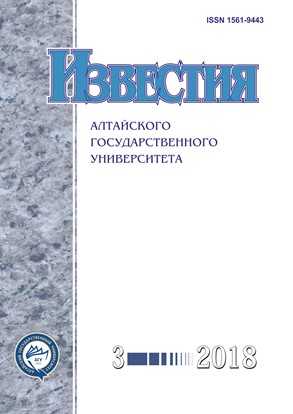The Powers of the Public Prosecutor in the Trial
Abstract
In the modern period of the development of the Russian state the domestic legislation is being reformed actively, including the sphere of the criminal proceedings, which purpose is to protect the rights and legal interests of the persons and organizations which became victims of crimes. The article stresses that compliance of the regulations of the Code of Criminal Procedure of the Russian Federation that regulate the judicial inquiry by the public prosecutor will ensure a clear and professional execution of the power and authority on the arranging of the criminal proceedings. The role of the public prosecutor in the investigation of certain evidence in the trial is being searched. The author emphasizes the importance of the participation of the public prosecutor in the trial for making a lawful, reasonable and fair judgment. This understanding of the function of the public prosecutor in the trial conforms the constitutional provision that the recognition, observance and protection of the rights and freedoms of the person and citizen are the duty of the state. The article also emphasizes the importance of the protection of the victims' rights when the public prosecutor refuses to prosecute; of the interests of the society and the state which are protected by the law; of the persons from an unlawful and unreasonable charge, conviction, restriction of their rights and freedoms.
DOI 10.14258/izvasu(2018)3-22
Downloads
Metrics
References
Михайловская Н.Б. Изменение законодательной модели российского уголовного судопроизводства : моногр. — М., 2015.
Курочкина Л.А. Проблемы обеспечения прокурором прав участников судебного разбирательства : дис. … канд. юрид. наук. — М., 2003.
Белоносов В.О. Уголовный процесс : пособие для подготовки к экзаменам. — М., 2016.
Буланова Н.В. Участие прокурора в рассмотрении уголовных дел судами : моногр. — М., 2016.
Шадрина Е.Г. Государственное обвинение в условиях состязательного уголовного судопроизводства (процессуальные, тактические и этические аспекты). — СПб., 2010.
Хайдаров А.А. Процессуальные особенности производства допроса потерпевшего в ходе судебного следствия // Вестн. Твер. гос. ун-та. Сер.: Право. — 2013. — № 34.
Виноградов А.С., Хайдаров А.А. Процессуальные особенности производства допроса подсудимого в ходе судебного следствия // Журнал правовых и экономических исследований. — 2013. — № 4.
Савченко А.Н., Хохрякова Э.А. Возможность изменения публичного обвинения на частное: законодательство и судебная практика // Вестн. Челяб. гос. ун-та. Сер.: Право. — 2017. — Т. 2, вып. 1.
Фомин М. А. Изменение обвинения в суде: правила, выработанные практикой // Уголовный процесс. — 2011. — № 2.
Сидорова Н.В., Фролова С.С. Предъявление обвинения // Право: современные тенденции : материалы II Междунар. науч. конф. — Уфа, 2014.
Copyright (c) 2018 Т.В. Якушева

This work is licensed under a Creative Commons Attribution 4.0 International License.
Izvestiya of Altai State University is a golden publisher, as we allow self-archiving, but most importantly we are fully transparent about your rights.
Authors may present and discuss their findings ahead of publication: at biological or scientific conferences, on preprint servers, in public databases, and in blogs, wikis, tweets, and other informal communication channels.
Izvestiya of Altai State University allows authors to deposit manuscripts (currently under review or those for intended submission to Izvestiya of Altai State University) in non-commercial, pre-print servers such as ArXiv.
Authors who publish with this journal agree to the following terms:
- Authors retain copyright and grant the journal right of first publication with the work simultaneously licensed under a Creative Commons Attribution License (CC BY 4.0) that allows others to share the work with an acknowledgement of the work's authorship and initial publication in this journal.
- Authors are able to enter into separate, additional contractual arrangements for the non-exclusive distribution of the journal's published version of the work (e.g., post it to an institutional repository or publish it in a book), with an acknowledgement of its initial publication in this journal.
- Authors are permitted and encouraged to post their work online (e.g., in institutional repositories or on their website) prior to and during the submission process, as it can lead to productive exchanges, as well as earlier and greater citation of published work (See The Effect of Open Access).








